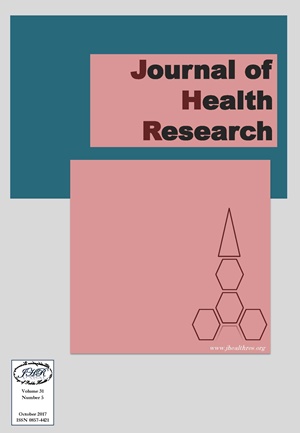Community Participation for Behavior Development to Prevent Opisthorchiasis among People in a Rural Areas of Lower North Thailand
Keywords:
Community participant, Behavior development, Prevention OpisthorchiasisAbstract
Background: Opisthorchiasis is a chronic parasitological disease. It is one of the significant public health problems in Southeast Asia, especially Thailand. This action based research aimed to study an application of community participation for behavior development to prevent Opisthorchiasis among select resident in Kwae Noi Dam, Phitsanulok province.
Methods: A total of 70 participants were selected. The process was divided into two phases. The first group was educated about situation analysis in the community, channels for health information, stakeholders, and food training. The second group was trained about prevention planning which composed of demonstration, modeling, group discussion, campaigning for prevention and rewards. In each implementation stage qualitative and quantitative methods were used for data collection. Data collection included information regarding socio-demographics, knowledge, perception of protection motivation, and preventive behavior. For the qualitative data, the content analysis was made according to framework and key themes that reflected the meanings and values of the learning management process. The quantitative data was analyzed by descriptive statistics including percentage, mean, standard deviation, Chi-square, and Fisher’s exact test.
Results: More than 70% of participants’ scores had improved significantly with marked increases in knowledge and perception toward preventive behavior for Opisthorchiasis. The learning processes were developed based on the real problems and the direct experience of the samples.
Conclusion: Processes and models are important instruments that affect the prevention of Opisthorchiasis among people (by using appropriate strategies and methodologies). The lessons learned will be useful for educational institutions, in addition to which, this innovative model can be applied to anyone. Moreover, this model not only provides a new academic experience but also suggests a new policy for community participant learning.







